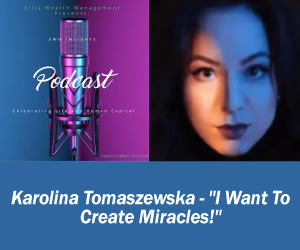We all know that stress is an internal state and can manifest differently in each person. In varying degrees, it can affect our physical, spiritual, behavioral, emotional, and cognitive experiences of life.
Avoiding burnout, or persistent auto-pilot, and increasing our overall resilience requires that we get proficient at Completing the Stress Cycle.
What we know for sure now is that
- Our bodies react faster than our brains can think.
- Our bodies remember the encoded messages of stress we experience, real or perceived, and the stressors that trigger them.
Our stress can be experienced as chronic, acute or both. It can be a current annoyance with a coworker or an adverse childhood experience that is lodged subconsciously. Either way, we need to complete the cycle of stress so that we can recover back to a baseline of safety. If we don’t, we can end up feeling stuck or sick; fatigued or in an utter funk of futility. It can have negative impact on our digestion, immune function, hormones and more.
Our flight or fight response meant to save us can ultimately be very corrosive. Cortisol and adrenalin can build up in our bloodstream. We need to shake it off to proceed toward a sense of safety. We need to discharge the stress.
When stress is locked up in our body it is like a kink in a hose; things just don’t flow well.
It makes sense then that attending to our bodies may often need to come first before we are able to address our experience verbally.
Cool Study:
In response to the trauma after 9/11, New York City supported the community by making sure Mental Health Specialists were available to meet the assumed need. In fact, the need was not as great as expected. This piqued the interest of Dr. Spencer Eth, who ran the psychiatry department at a Greenwich Village hospital. In 2002 Dr. Eth conducted a survey of 225 survivors who had escaped the Twin Towers to understand better what helped them overcome the effects of their experience. The respondents stated that what was most helpful to them was acupuncture, massage, yoga and EMDR, in that order. (1) All somatic/physiological relief treatments. Interesting, right?

So here are some of the most efficient strategies for completing the stress response cycle (2):
Physical Activity – is what tells your brain you have successfully survived the threat and now your body is a safe place to live. Physical activity is the best strategy for completing the stress response cycle. Again, think – acupuncture, massage, yoga.
Everything from changing your posture, standing up from your desk and taking a deep breath with a big exhale, to a hard workout; anything that gets your body moving and breathing deeply. 20-60 minutes of exercise most days of the week… you know the drill.
Positive Social Interaction – Be intentional about connecting kindly to others. This will reassure your brain that not all people suck and that the world can be a safe and sane place even for just your little moment, and then the next.
Laughter – My favorite and why I’ve developed a super-power for seeing the absurdity in life. It makes me chuckle. Watch the movie “Patch Adams” for an education about the power of humor on the human body. Remember: people went to the movies even during World War II. Have a laugh!
Affection – Sometimes a deeper connection with a loving presence is what’s needed. Hugging a pet or receiving a warm hug can do as much, if not more, as going for a jog.
A Big ol’ Cry – There is a difference between dealing with the stress and dealing with what caused the stress. So, go have a good sob if you need to. You will have successfully completed the stress cycle!
Creative Expression – in all its forms, creativity is a gorgeous vessel for our emotions. Whether it’s music, fine arts, theater, storytelling, doodling, coloring books, whatever – these activities not only tolerate the complexities of stress they welcome them, burnish their edges, and repurpose experiences for the future… more positively and with enthusiasm.
How do you know you’ve completed a stress cycle?
You’ll sense a shift in mood, mental state, or a release of physical tension. Your thoughts or ruminations may relax or subside. You’ll notice a gearshift. Ahhh…
**Talk therapy can be very helpful as we know. But often, it’s difficult to define what our emotions are doing, and label our feelings, or even describe what’s going on for us if we haven’t first attended to the stress held in our body.
Note: sometimes there is a fear that unkinking that hose and releasing that stress will initiate an overwhelming tsunami of feelings. Here’s the truth: You will survive it if it comes. It may be less than you expected. You will not die. Your Self will not dissolve, and your identity will not implode.
In fact, you may discover a liberation, a weight lifted and a profound resilience.
Complete the Stress Response Cycle. Discharge that stress!
You got this!
References and deeper dive reading:
- The Body Keeps Score – Bessel Van der Kolk – chp. 14, pg. 233
- Burnout- The Secret to Unlocking the Stress Cycle – Emily Nagoski, PhD and Amelia Nagoski, DMA

Lisa Wellington is a Certified Mindfulness Teacher who writes about integrative practices that downshift stress, increase insight, and jumpstart joy.
She is best known for her work with law enforcement professionals as well as those challenged by housing instability and addiction. Trained in the Fine Arts at Washington State University, she specializes in group training that engages participants’ inherent creativity.
If she is not under a stack of books about psychology and spirituality, she can be found at a Puget Sound beach or nearby trail, always searching for the absurd, which is her superpower.
To view last week’s Mindfulness on Tactical Breathing, click here.



















